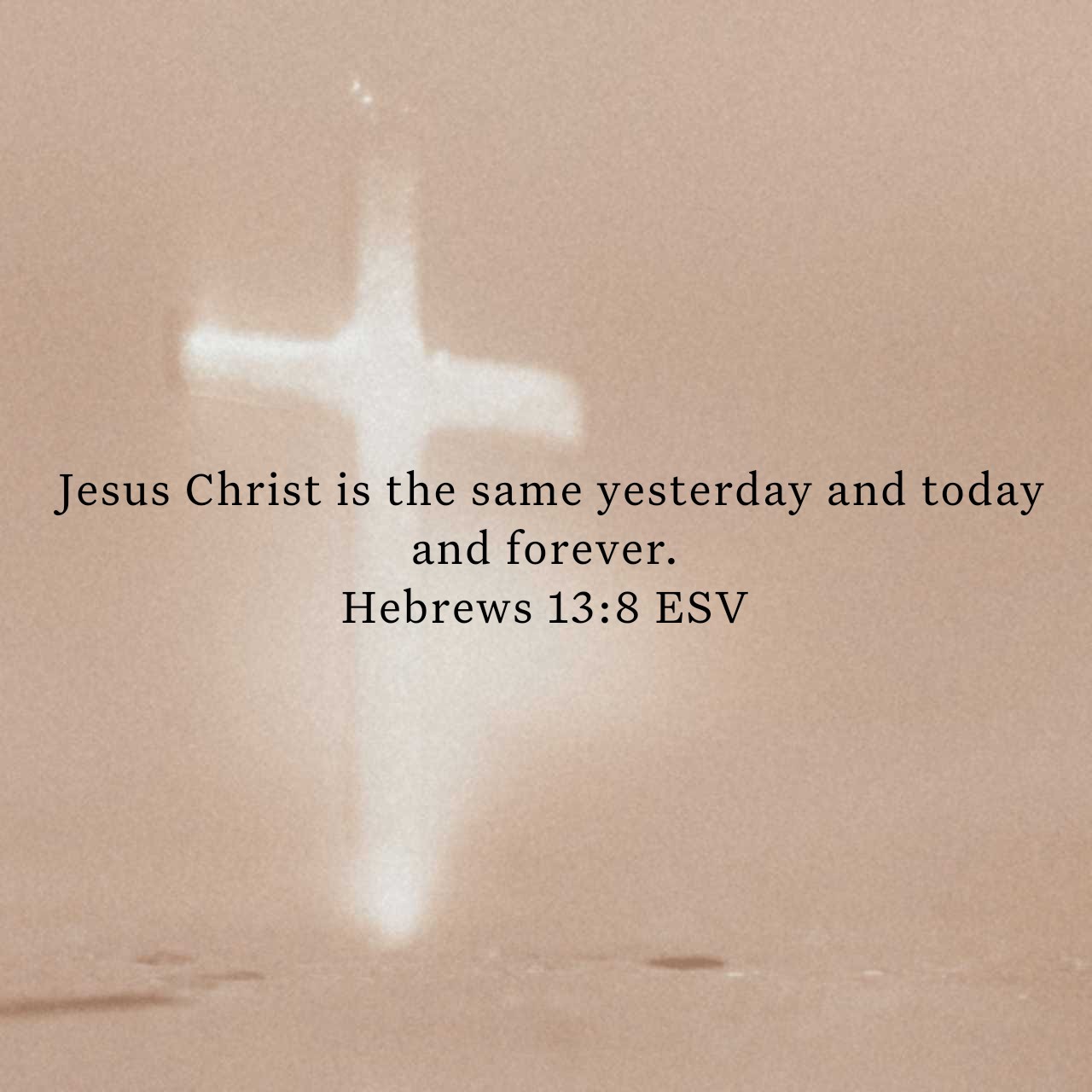Devotional 12 August 2025

The writer of Hebrews has just urged us to “remember your leaders… and imitate their faith” (Heb. 13:7). The reason is clear: the same Jesus who sustained them “yesterday” is the same today and forever (Mal. 3:6; Jas. 1:17). His faithfulness and sufficiency have not changed with time or circumstance. This ties to the letter’s opening claim that “Jesus Christ is the radiance of the glory of God… upholding the universe by the word of his power” (Heb. 1:3) and to the assurance that “He always lives to make intercession” for His people (Heb. 7:25). The faith of the saints in the past was not in a temporary provision but in the eternal Son of God, who remains the foundation of our hope (Ps. 102:25–27; Rev. 1:17–18).
Because Jesus is unchanging, the gospel is not a moving target. We are warned not to be “carried away” by diverse and strange teachings (Eph. 4:14; Col. 2:8) that promise something more than Christ or suggest that His work is not enough (Gal. 1:6–9). Hebrews has already reminded us that “the law made nothing perfect” (Heb. 7:19) and that old covenant regulations were “imposed until the time of reformation” (Heb. 9:10). Such teachings, whether returning to old covenant rituals or chasing new spiritual novelties, pull the heart away from the sufficiency of grace (John 1:16–17; 2 Pet. 3:17–18). Our hearts are to be “strengthened by grace” (2 Tim. 2:1), not by ceremonial foods or observances that could never cleanse the conscience (Heb. 9:9–14).
The “altar” we have is Christ Himself, who offered His own body as the once-for-all sacrifice (Heb. 10:10–14; 1 Cor. 5:7). Those who remain devoted to the “tent” (tabernacle), the old priestly system, cannot partake of this altar (Gal. 5:2–4), for the shadow has no share in the reality (Col. 2:16–17). Just as the priests under the old covenant could not eat from the sin offering burned outside the camp (Lev. 6:30), so those clinging to the old shadows cannot partake in the benefits of Christ’s sacrifice. In Him, we have the privilege of drawing near to God through “a new and living way” (Heb. 10:19–22) without the barriers of the old system.
This is the theological anchor: because Jesus never changes, His grace never expires, His kingdom never fades (Dan. 7:14; Heb. 12:28), and His sacrifice never loses power (Heb. 9:12; 1 Pet. 3:18). We do not need to go back to the shadows, nor do we need to run ahead to novel ideas. Our faith is firmly rooted in the One who is “the same yesterday and today and forever” (Heb. 13:8). His constancy is our security (Ps. 46:1–3), His sufficiency is our strength (Phil. 4:13), and in Him the best has already come (John 19:30; Heb. 1:1–2).